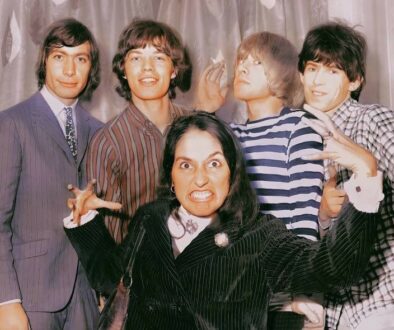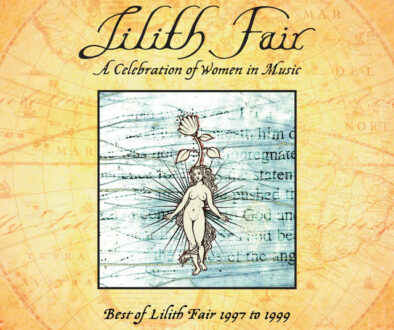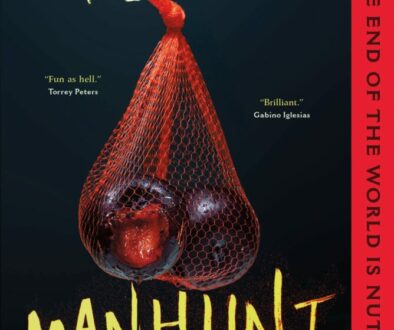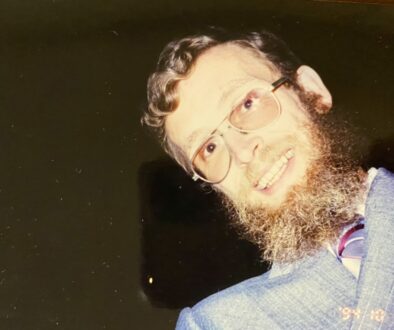Four Tiny Essays On SF/F
I just drove an hour in a fucking hellish snowstorm and am in no shape to do all the typesetting on Last War in Albion, so that’ll be a day or two later in the week. For now, I’ve had a couple of old Twitter threads get a lot of renewed attention on the back of some debates about current trends in SF/F literature. A couple of these are things I reworked into what I called “tiny essays” for Patreon a while back, and if my views are going to get cited and thrown around I may as well put them up in a durable and lightly edited form. So here’s four tiny essays on recent aesthetic trends mostly around SF/F, to publicly stake out some positions.
The Tor Wave
For three years running there have been precisely zero white men nominated for the Best Novel Hugo, and the last one to actually win was John Scalzi all the way back in 2013. This suggests a clear aesthetic shift in how sci-fi works—one on the scale of the rise of the New Wave in the 1960s or the sudden arrival of cyberpunk in the mid-80s. However nobody has formulated a take on how this movement functions.
Part of this is undoubtedly the nazis. The Sad Puppies attacked this style before it had gotten a chance to self-codify. Their attacks were farcical and largely not even wrong—the claim that this “wasn’t science fiction” remains pure historical erasure. But like any propaganda there were just enough truths mixed in with the lies to make things difficult.
Core principles.
- Diversity as an underlying assumption. Fantasy that isn’t medieval Europe fetishism but starts from international perspectives. (Rebecca Roanorse, N.K. Jemisin) Overt queerness (Charlie Jane Anders, Tamsyn Muir). This isn’t diversity for diversity’s sake, but rather focused exploration into the options that the white male default precludes.
- A massive dollop of fanfic and romance influence. Tamsyn Muir and Charlie Jane Anders are at the front line of this, so it clearly overlaps substantially with queerness. But let’s not forget that Naomi Novik’s breakout series was a reskinned Master and Commander fanfic.
- It’s stylistically a big tent, with the lyrical and allusiveness of Piranesi sitting comfortably alongside the cyberpunk reconstructionism of The Murderbot Diaries. Put another way, this is by a generation for whom SF/F has always had lots of different traditions, and who grew up reading all of them. Post-factionalization, although in practice this is still a faction.
Within this, the New Wave clearly has a ton of influence. Its innovations—SF/F conceits as tools for exploring interiority, the foregrounding of different cultural perspectives, stylistic experimentation—are all very, very internalized here. No longer controversial or innovative, just the way things are done. These are writers who grew up with library book sales where cheap copies of Dragonriders of Pern and Left Hand of Darkness abounded. More to the point, these existed besides Rendezvous with Rama and Neuromancer, all in a single “Science Fiction/Fantasy” genre.
A final, pragmatic note: Tor has a ton of sway here. Fully a third of the Hugo nominees for Best Novel in the last three years. Other presses play too, but Tor is clearly leading the charge.
Prospective name for this movement is therefore a combination of this pragmatic fact and the extreme New Wave influence: Tor Wave fiction.
Hugboxing vs Scab Picking
I want to identify two competing tendencies in queer genre fiction, with an implicit assumption that the tendencies port to other kinds of storytelling from marginalized perspectives. The central issue is “how do we engage with our own oppression within art.”
Option 1 (Hugboxing): Art is a place to imagine our liberation from oppression. I will create worlds where I am not oppressed.
Option 2 (Scab-Picking): Art is a tool for engaging with my oppression. I will create worlds that are tools for analyzing my oppression.
These two approaches tend to be antagonistic. Hugboxers view scab-pickers as reiterating harm, potentially unhealthy, likely triggering or traumatic, often problematic. Scab-pickers view hugboxers as lightweight, contentless fluff, facile, boring, twee.
Not always though, especially on different axes. Benjanun Sriduangkaew writes stories that are hugboxing on queer terms—no queerphobia, nobody ever dies for being queer, lesbians end up happy together—but that grapple intimately with oppression in other ways. Obvious point: this is a spectrum, not a dualism.
I will admit my biases: I’m a scab-picker through and through.
Scab-pickers have the advantage of being more closely allied with dominant ideas of “artistic worth.” Hugboxers have the disadvantage of being what’s criticized, distorted, and mocked by people talking about “wokeness.”
Isabell Fall’s “Helicopter Story” is a good case study here. It was a scab-picking story, looking at dysphoria and self-alienaton, explicitly picking a scab of transphobic language, and got seized upon by people who mistook that scab-picking for bigotry. Its author retreated from the public sphere, was hospitalized for being suicidal, and still isn’t publicly out as trans.
A clear fault line here is that scab-picking has to be done in community. Cis people don’t get to pick trans scabs.
Hugboxing is largely (though by no means entirely) a younger aesthetic. Baby queers whose sense of queer history is entirely learned on Tumblr, if we want to be pejorative about it, and I kinda do. There’s a correlation but probably not an equation with sex-negative discourse. “No kink at pride” and “no abusers in fiction” go hand in hand.
But there’s something liberatory to it too. Scab-picking may more consistently produce good and artistic fiction, but you can’t help but think that if something comes along that shakes the foundations of what’s possible it’s gonna come from the hugbox side.
Epic Cold
In terms of aesthetics that can plausibly stand up to the Marvelization of all things, we are left with one thing that has anything like the cultural footprint to unseat it. Not the only alternative possible—just the only alternative that can crack the domestic box office top ten for the year. Let’s call it Epic Cold. In film, the core trio doing it are Denis Villeneuve, Christopher Nolan, and Zack Snyder.
Characteristics: Coldness, obviously. Very clinical, a focus on technique as the important element. Neo-modernist in this regard. Emotional investment is not important to these films. Big ideas and visual spectacle are very important. No Banter. To make an obvious point these films are hella male.
Protagonists are often ambiguous, uncertain, distant ciphers. If they have important emotions, they are singular emotions that serve as obsessions. These emotions might be extreme, but they are looked at rather than empathized with. Obvious debts here are Lovecraft, noir, and the “difficult men” school of Prestige Television. (Indeed, its first example is probably Battlestar Galactica.)
There are obvious, massive problems with this aesthetic, of which the fact that its most vocal fans are the worst sort of Internet dudebros is only the most obvious. But look, the enemy of my enemy. We can kill it once everyone is doing austere cerebral epics and the top ten for a year has Rendezvous with Rama and The Moon is a Harsh Mistress in it, but for now this is all that’s available to stand up to Marvel as a hegemonizing force. So we’d best find something to like in it.
One obvious choice: it’s an aesthetic that lets you grapple with big ideas. This is arguably the only thing it’s good for, but in a world horribly packed with Save the Cat style structures there’s a lot to be said for big idea fiction making a comeback. It’s also just a needed correction. “Look at what everyone’s doing and do the opposite” is never a bad starting point.
Perhaps what’s most productive is imagining the ways to build on Epic Cold. Can it be made a vehicle for marginalized voices? Can it be horny in the ways that Marvel movies refuse to be? (Is it already horny? Zack Snyder’s version certainly is…) What happens if we do it without being so goddamn anxious about camp?
And, of course, how do we kill it? Once it’s the dominant view, what can come next? (See also: Tor Wave)
Epic Cold may not be the aesthetic future we want, but it’s the only change on the table. The people who learn to engage with it well are going to have some major advantages over the rest of us.
Whither Edgelording
There is no recent cultural moment that is more comprehensively out of fashion than 90s/00s edgelording. Indeed it is so completely, utterly unfashionable that there is necessarily baby in that bathwater. Let’s find it.
(Note: We’ll be running a big, multipart feature soon enough from Holly in which she looks at the complete career of Eminem that’s going to touch on some of this. These are my own preliminary thoughts on the broader topic.)
Two phases of edgelording: the 90s, with its rise of proudly controversial content. Nine Inch Nails, Marilyn Manson, Preacher, Vampire: The Masquerade, Doom. Columbine is a clear transition point here. Largely pre-Internet—certainly not dependent on the Internet. The 00s: Eminem, South Park, 4chan. The Internet is suddenly a huge part of this. Much more nihilistic.
90s edgelording is clearly much more sympathetic. 00s edgelords all either transitioned or became nazis. Easy dichotomy: edgelording as expression of anger (good) vs edgelording as nihilism (bad). Too easy? Probably.
Think about the 00s. The long chain of subcultures that began in the 1950s finally, shudderingly collapses. The Bush era and 9/11 is forcing cultural hegemony like nothing before. The blunt efficacy of edgelording has its virtues in this context, in an era where anti-authority worked as a default position. As the political right became increasingly nihilistic, anti-authority became more complex as a political position. To make an obvious point, anti-authority leanings in a pandemic get people killed.
But there’s still something to said for anti-authority in the general case. For one thing, it’s not like edgelordy fascists aren’t authority. For another, authority still sucks. Authority is capitalism and shitty abusive bosses and your goddamn landlord and fuck them all.
00s edgelording was a tool of the people being shut out by the War on Terror’s cultural hegemony to speak without voice. “You won’t let me speak no matter what I say so I’ll say the worst thing there is to say so that you yell at me instead of ignoring me.” The question in using edgelording today is who isn’t allowed to speak. In which case there’s loads of ways forward for edgelording. What about disabled edgelording? Trans edgelording? Maybe the master’s tools will never dismantle the master’s house but the master’s tools might leave a bag of flaming poop on the master’s doorstep, and sometimes that’s enough.





January 17, 2022 @ 6:25 am
I wonder if the relative chillness of 90s Edgelords has something to do with it being Goths adjacent. As a habit
the Goth scene didn’t decidedly take itself too seriously. Though this might be a UK /USA thing obs.
January 17, 2022 @ 9:26 pm
I had a discussion about this in the context of White Wolf in particular on a podcast ep I did about the World of Darkness.
The conclusion we came to was that one of the key tipping points was from a genuine willingness to offend everyone (manifesting as mostly punching up by accident) into “we offend everyone” as a covering statement for a more pandering offensiveness that tended to come down hard on marginalised people. I think not taking oneself seriously is a component but I wonder if a shift from offensiveness as a component of a creative identity to offensiveness as a selling point of a brand (and thus the thing you need to up the ante on to keep going) is more important.
January 19, 2022 @ 7:37 pm
I’m interested also in the distinction between how edgelording works in comedy (the thing that eventually put me off was people using the defence that they were punching everywhere – punching everywhere can mean you reinforce the existing hegemony because punching down has more impact on a marginalised community than punching up toward people who can soothe their bruises with icepacks of cash and cultural capital) and how it works in fiction.
The anger/nihilism dichotomy (which feels true to me, though as said, wary of easy binaries) feels easier to pick in comedy.
Started watching Euphoria recently and had to leave it to my wife because it felt too edgelord, too Rules of Attraction and I just couldn’t trust it.
Even though it centres trans stories, stories of women of colour, stories of other marginalised people, it felt like I was watching trauma porn. I dunno.
Maybe it is actually an angry, pretty, flaming pile of poop in a bag?
It was too close to the edge for me to be interested in finding out (which then makes me terrified I’m only ok with the Marvelisation of fiction, and that skit where Zendaya messes up her hair and eyeliner to transition from MJ to Rue was a little too real).
All of which is to say, thank you for these excellent, interesting thoughts (I wish I could search for Tor Wave fiction to find my next book)
January 20, 2022 @ 8:51 am
I’m not the first person to point out that what happened to the late Isabel Fall was pure Requires Hate, even though Sriduangkaew themself had nothing to do with it. A new, young, recently transitioning writer, obviously talented, writing on queer topics from a queer POV? That would have brought Requires Hate down like the wasp upon the caterpillar. And, as it turns out, at least two of the people leading the charge against Fall online were personally close to Sriduangkaew; one of them was (afaik still is) one of their most ardent online defenders.
(Requires Hate falls firmly into my personal “life’s too short” file. There’s good queer fiction written by people who aren’t personally loathsome. YMMV.)
Also, that was /such/ a good story. As soon as I read it, I said “that’s a Hugo nominee”. In the near future, there’s technology to alter gender identity — not gender, gender identity — and of course the US military fucking weaponizes it. That’s exactly the kind of of head-thumping cool idea I associate with the best of the New Wave. In terms of sheer brio it felt like a Thomas Disch story, though without the unpleasantness.
As to scabpicking… IMS, the protagonist has volunteered for the reassignment treatment, because it will make her a better and more skilled soldier. Okay, volunteering for the military is arguably becoming complicit in oppression, but it’s a lot subtler than, say, Disch’s weaponization of intelligence enhancement in Camp Concentration.
I did wonder at the time how many of the people screaming about the story caught that aspect: that queerness could be weaponized to make you /objectively better at something/. Yes, that’s a discourse of oppression — you know those people, musical theater is full of them, they’re so good at sports and music — but does it get half-inverted if Those People actually are better? If other people will pay good money (or join the Army) to become like them?
Point being, if that story was scab-picking, it was doing it with a surgical tool. If Fall had lived, there was a whole cool and creepy world that could have been opened there.
ISTM this ties to the ongoing debate about disabled characters in settings that are high-tech or equivalent: “representation” vs. “surely they would have fixed that” vs. “being deaf (or whatever) is not a problem” vs “or if it is it’s not your problem to handwave away”.
Doug M.